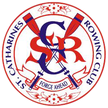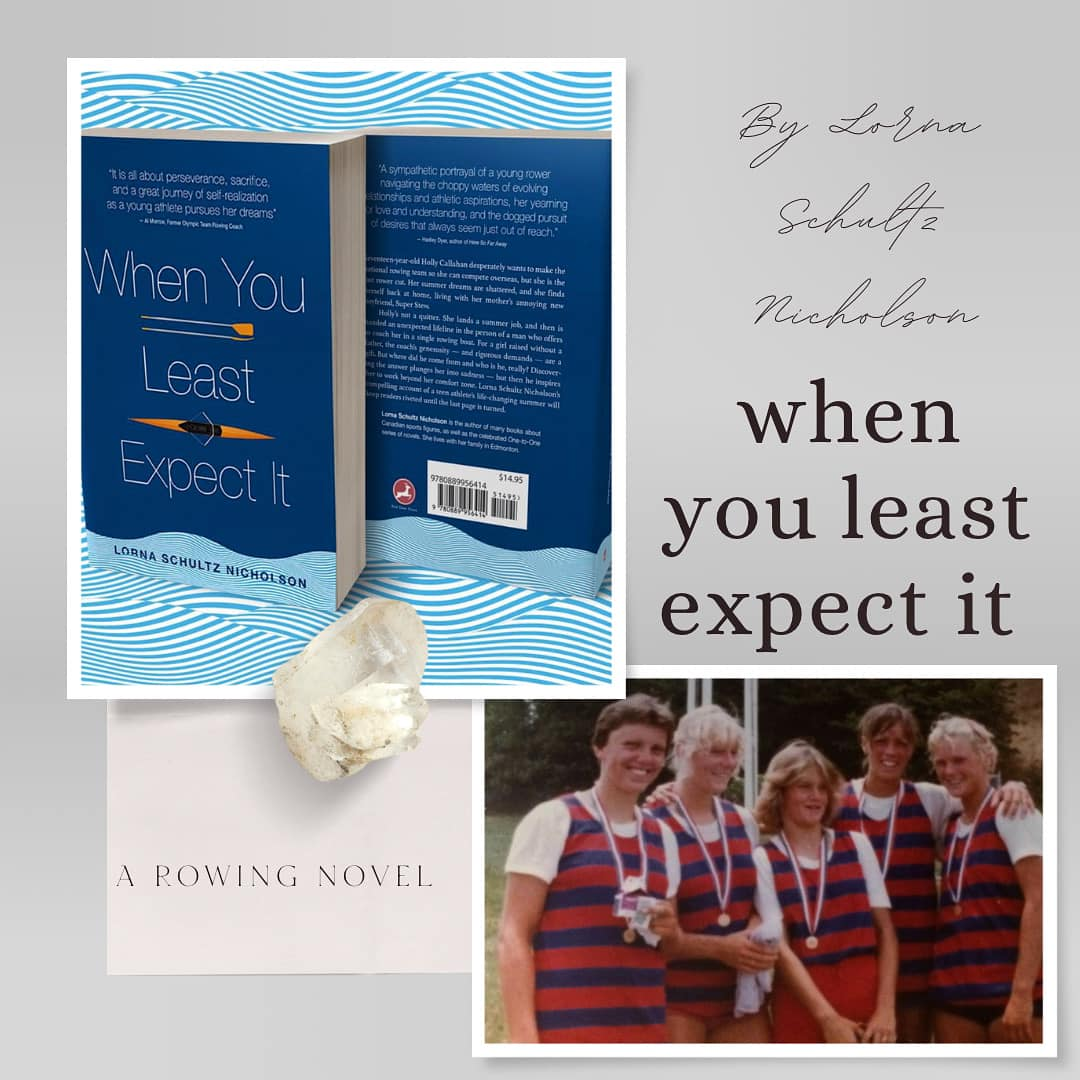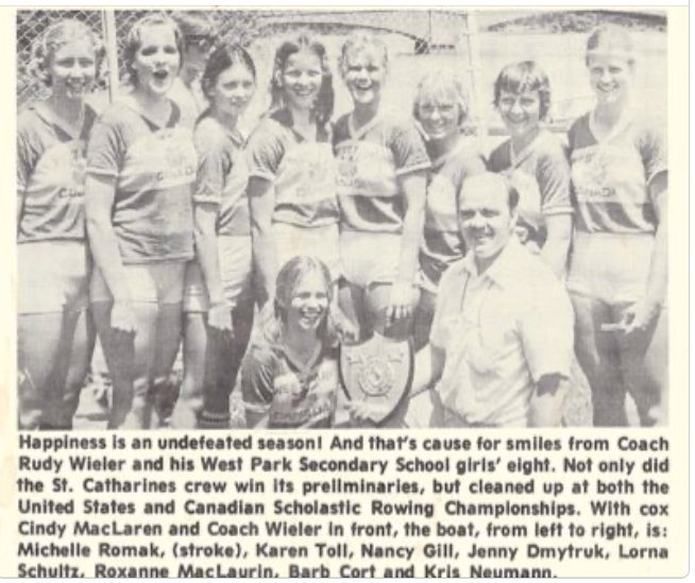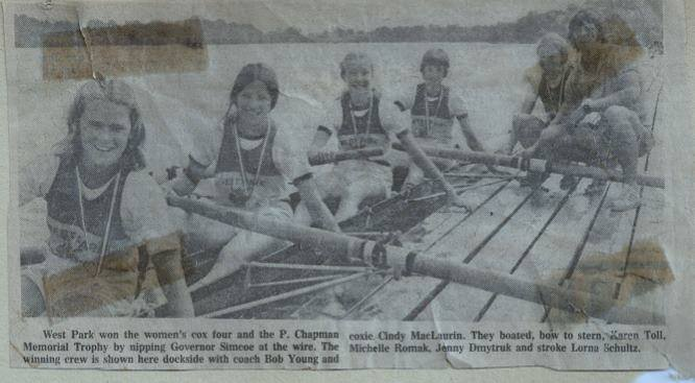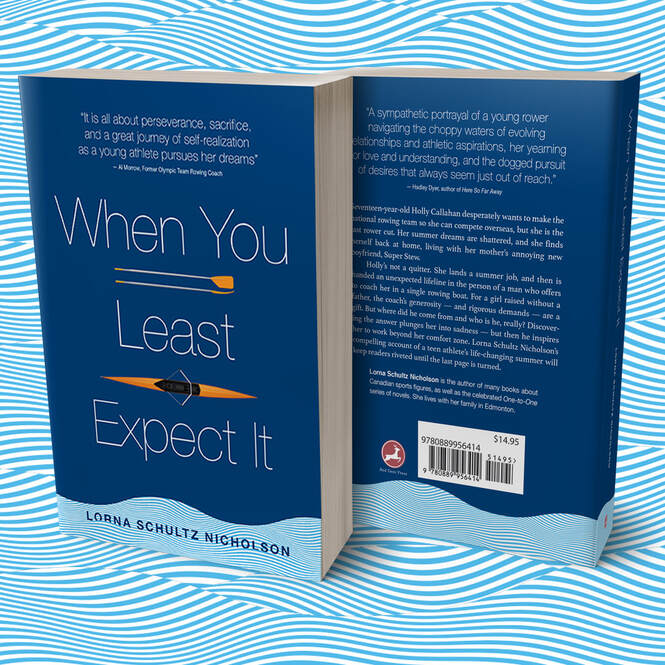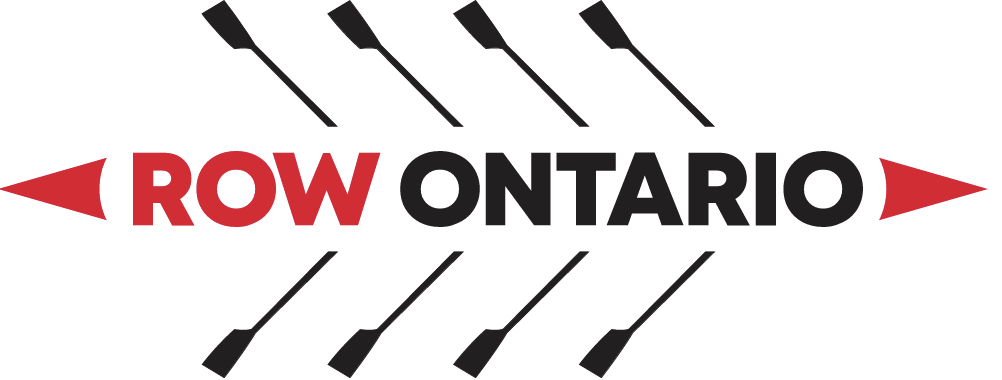|
The newest installment of our Distinguished Alumnae Series features a chat with Lorna Shultz Nicholson, former high level competitive athlete with the St. Catharines Rowing Club and more recently, award-winning author. Lorna fondly remembers learning to row at SCRC and has an interesting story to tell about her journey. Her most recent novel centers around some of those experiences, and the St. Catharines Rowing Club features prominently in the story. This interview is timely in that Lorna will be returning home to visit the club during the Mother’s Day Regatta and will have the opportunity to talk to young athletes about her experiences and her book.
From where did your inspiration to write a novel grounded in rowing come? How or why did your experiences in this sport captivate your literary imagination? Sports has been a theme in many of my books but before WHEN YOU LEAST EXPECT IT, I’d never written about rowing. So…it was about time. I rowed in high school for West Park Secondary School, the first year that females were allowed to row in the CSSRA regatta, and I fell in love with the sport. After I stopped rowing, I coached at St. Margaret’s High School in Victoria and at the University of Victoria. With so much experience in the sport, it was only a matter of time before I wrote about it. Many of my own experiences, including being cut from the National Team, are embedded in the fictional plot that surrounds Holly, the main character. There is one main plot in the story, however, that is a direct result of an incident that happened when I was coaching for the University of Victoria. The tragedy of the incident has been eating away at me for years and I think this book was a way for me to express those emotions and grief that I pushed down. What was the process in creating the characters? Do you have a character with whom you identify the most? When I create characters, I think a lot about them ahead of time and jot down notes. I knew I wanted a strong female lead, who had a goal and a dream. I wanted to showcase a female athlete so that readers could understand what they go through to be successful. It’s easy to watch athletes perform on television, but I wanted to show a behind the scenes story so readers could see the hard work that goes into that final race. Holly is my main character. The character of Alan is a composite character of coaches I mentored with when I was coaching, (especially Al Morrow and Alan Roaf, thus the name), and I wanted him tough but kind. I knew I couldn’t write from his point of view in a Young Adult book, and I thought long and hard about how to get his side of the story on the page. That’s where I came up with the verse sections. It was my way of giving Alan a voice. I won’t say much more about that as I don’t want to give spoilers. I think I identify most with the character of Holly, because her situation of being cut was definitely something I went through.
St. Catharines Rowing Club is featured in this novel; what does the Club mean to you in this regard? It was at the St. Catharines Rowing Club where I won my first medal and it’s also where I got cut, learning a valuable lesson. So…the club gives me great sport memories. My first medal was in the coxed four at the CSSRA regatta in 1976. The elation of winning was such a high. It was a new high school sport for females, and we were coached by Bob Young. I was in a boat with Michele Romak, Jenny Dmytruk, Karen Toll, and our coxswain was Cindy McLaurin. I’m sure these are names that are still recognized although some have married names now. Even after all these years, Michele was a huge help with this novel, as we are still in touch to this day. Rowing in St. Catharines has given me so many lifelong friendships. The SCRC was also where I got cut from the National Team, and that was in 1977. I was in a coxed four with Kathy Lichty, Gail Cort, Andrea Schreiner, and we were coxed by Lesleh Anderson. More names that are synonymous with the SCRC. Lesleh was also a huge help with the novel, reading it a few times for me and once in a really, really rough draft, which is kind of her. In 1977, we had trained all summer, twice a day, but I wasn’t the one who travelled overseas. I remember both of those experiences and they have played a big part in the novel. Sport is full of wins and losses, and I experienced both at the SCRC, giving me wonderful emotions that I can now write about. Could you delve into your personal experiences at SCRC? I consider the St. Catharines Rowing Club my home club. Yes, I rowed for a few other clubs, but St. Catharines is my home. I started rowing for West Park and I also rowed for the St. Catharines Rowing Club under the legend, Rudy Wieler. I have so many memories of riding my bike to the boathouse, getting the boat on the water, and rowing up and down that course. Plus, going to the “Black Bridge”. Every time I’m back in St. Catharines and driving over the bridge, I stare at the course. It was my home away from home as we spent so much time there. Of course, I can’t forget running grandstands either. Or of racing in regattas. The Henley is still one of my favourite memories.
Do you feel that your experiences of rowing prepared you for any aspect of writing novels, or in a wider scope, adult life? This is a great question. I do a lot of school visits and I always tell the kids that rowing prepared me for writing. With rowing and writing, there is work to be done behind the scenes. You don’t just miraculously win. The training is gruelling and painful and is hours and hours of time spent on the water and in the weight room. And that is like writing. Only now I spend hours and hours in a chair and don’t get the benefit of exercise. I have to get that elsewhere. Lol. Now I have to sit down to write instead of sit down in a boat. Rowing also teaches discipline, and you need that to be a writer, especially in the early draft phase. The words are sometimes difficult to find, and you must persevere. Then there are the revisions. Sometimes a coach makes you do something over and over again, and that is like writing. You revise and revise. I’m also lucky that I was cut like I was. I can say that now. It taught me how to deal with rejection and the writing world is full of rejection. So, yes, rowing prepared me for writing novels, in many, many ways. What is the most important lesson of your novel? Don’t give up. What is the most important lesson you would like people to learn from the sport of rowing? Rowing is more than the success of the race, those wins and losses, it’s about experiencing emotions, and more importantly, it’s about the lifelong friendships. What’s on the horizon for you with regards to your writing? I have three books coming out in the fall of 2022:
Thank you so much for this opportunity to share the insights into my novel and talk about the beautiful sport of rowing. Oh, and by the way, WHEN YOU LEAST EXPECT IT has been shortlisted for the Writers Guild of Alberta R. Ross Annett literary award, and that makes me happy because now more people will know about the sport of rowing and the SCRC!
|
St. Catharines Rowing ClubThe St. Catharines Rowing Club has a long tradition of competing at the highest level in the sport of rowing. Categories
All
Archives
November 2023
|
Please Support Our Sponsors
SIGNATURE
PLATINUM
GOLD
SILVER
BRONZE
© 2014, St. Catharines Rowing Club
St. Catharines Rowing Club, P.O. Box 28010, 600 Ontario St., St. Catharines, ON, L2N 7P8.
St. Catharines Rowing Club, P.O. Box 28010, 600 Ontario St., St. Catharines, ON, L2N 7P8.
